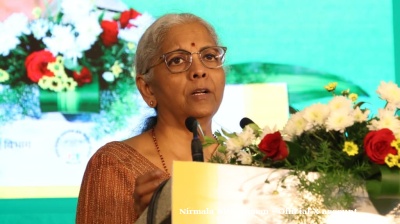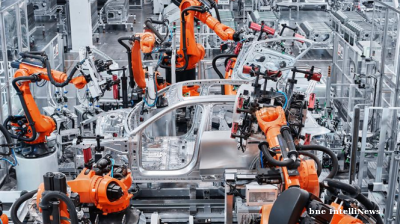Japan’s usually stagnant political landscape was shaken by a dramatic shift among younger voters at the weekend, when the results of a House of Councillors election – typically seen as a measure of how a prime minister is perceived by the public – were realised on July 21.
The results left Prime Minister Shigeru Ishiba politically weakened just as the country was facing renewed trade pressure from the United States, Barron’s reports.
In the 48 hours since, Ishiba has faced multiple calls to resign from across the political spectrum but with the announcement by US President Donald Trump of a “massive” trade deal with Tokyo, the head of the Liberal Democratic Party could have seen his political career saved, if only temporarily.
Posting on his social media platform, Truth Social, President Trump said: “We just completed a massive Deal with Japan, perhaps the largest Deal ever made” (sic).
Trump also confirmed that the proposed 25% tariff on Japanese vehicles, set to begin on August 1, would instead be reduced to 15% AFP reports. Japanese imports were already subject to a 10% tariff, meaning that the new agreement only helps avert a steeper increase that had threatened to impact a key pillar of Japan’s economy.
In addition to the tariff reduction, Trump said that “Japan will invest, at my direction, $550 Billion Dollars into the United States, which will receive 90% of the Profits.”
The 79-year-old president did not disclose further details on what such an unprecedented investment would entail, but added the deal “will create Hundreds of Thousands of Jobs.”
Tariffs of 25% had already been applied to Japanese automotive exports to the United States – an industry that accounts for approximately 8% of all employment in Japan. In addition, duties of 50% remain in place on Japanese steel and aluminium exports – for now.
Speaking in Tokyo earlier on July 23 in response to the deal, Prime Minister Ishiba confirmed the tariff cut on automobiles, stating: “We are the first (country) in the world to reduce tariffs on automobiles and auto parts, with no limits on volume.”
As such, while the announcement is likely to be welcomed by Japanese exporters, questions remain over the specifics of the purported $550bn investment and the distribution of profits claimed by the president. Nevertheless, the deal marks a notable development in Washington-Tokyo relations, particularly as global trade tensions continue to simmer.
At home, meanwhile, Ishiba is still facing the repercussions of the so-called ‘youthquake’ effected by increasingly disillusioned younger Japanese voters demanding tax cuts and questioning a system they perceive as overly generous to the elderly.
It was the LDP’s third consecutive electoral setback and saw the party lose its majority in the upper house of the Diet, Japan’s national parliament. With all votes counted, the LDP and its coalition partner, Komeito, secured only 47 of the 124 seats contested. This follows a defeat in the lower house elections last October and poor showings in the Tokyo municipal elections a month ago.
It is this latest blow, despite Ishiba initially pledging to remain in office to oversee ongoing trade negotiations with the United States, that may now serve to push the Japanese leader from power – job at least partly done vis-a-vis tariff reductions.
While the largest opposition force, the Constitutional Democratic Party, held its ground, two newer parties – the Democratic Party for the People and the somewhat controversial Sanseito – made significant gains. Their appeal to younger voters, amplified by savvy social media campaigns and nationalist rhetoric, helped them cut into traditional LDP bases.
These results come against a backdrop of economic frustration across Japan. Real wages have declined by 5% since 2022, inflation has returned for the first time in years, now hovering above 3%, and taxes continue to rise. And although investors have benefitted from Japan’s tentative escape from deflation, the average wage-earner has not.
And even with the July 23 Trump announcement, Ishiba’s performance on the trade front has done little to allay concerns at home that issues surrounding US access to the agricultural sector, particularly rice, have yet to be fully addressed.
To this end his weakened mandate is expected to at the very least reduce his room for long-term and effective manoeuvre in future trade discussions; a factor that may even be behind the timing of Trump’s ‘massive’ deal declaration – comments the drowning Ishiba may now see as a straw at which to clutch to extend his own political tenure as PM, while throwing the Japanese agriculture sector under the bus driven by Donald Trump.
News

Ex-chairman of Istanbul-listed Sisecam hit with travel ban in Can Holding investigation
Company is controlled by "Ataturk" bank Isbank, which has previously been in the crosshairs of Turkish president Erdogan.

Ghana’s dormant TOR refinery to restart crude operations by October-end
Ghana has long struggled to translate its crude output into refined fuel security. Successive governments have pledged to revive TOR, which has faced years of debt, mismanagement, and technical breakdowns.

No Tomahawks for Ukraine, Trump to meet Putin in Hungary
The US cannot deplete its own stockpile of Tomahawk cruise missiles by supplying them to Ukraine, President Donald Trump said at a press conference on October 16 following a phone conversation with Russian President Vladimir Putin.

Bangladesh seeks death penalty for former Prime Minister Hasina
Bangladesh’s interim administration led by Nobel laureate Muhammad Yunus has requested the country’s criminal tribunal impose the death penalty on former Prime Minister Sheikh Hasina

_-_CC_BY_4.0_Cropped.jpg)


